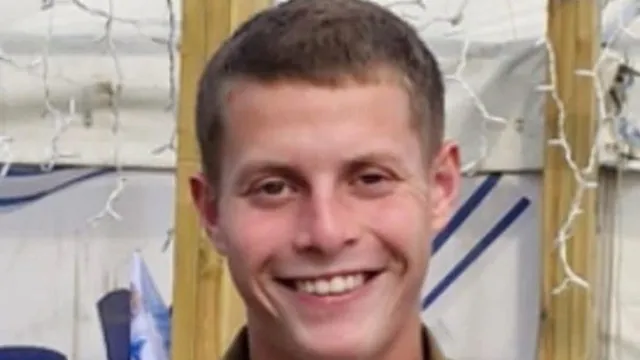
British-Israeli soldier killed during fighting in Gaza
2025-06-30 09:45- Sergeant Yisrael Natan Rosenfeld, 20, killed in combat in northern Gaza while serving in the IDF.
- The soldier's death is part of an escalating military conflict following Hamas's October 7 attack on Israel.
- Over 860 Israeli soldiers have been killed since the conflict began, highlighting the toll of violence on both sides.
Express your sentiment!
Insights
In a significant ongoing military conflict, a British-Israeli soldier was killed while engaged in combat against Palestinian militants in the northern Gaza Strip. The Israel Defense Forces (IDF) reported that Sergeant Yisrael Natan Rosenfeld, a 20-year-old member of the 601st Combat Engineering Battalion of the 401st Brigade, lost his life during operations that aimed to dismantle terrorist infrastructures in the area. Rosenfeld had emigrated from London to Israel with his family 11 years earlier. This incident marks a tragic loss amid an escalation of hostilities that has left a profound impact on both Israeli soldiers and the civilian population in Gaza. The conflict intensified following the Hamas-led attack on Israel on October 7, 2023, a trigger for Israeli military operations that have resulted in significant casualties on both sides. The IDF reported that Rosenfeld was killed by an explosive device on a Sunday, a day characterized by active military engagement. Since the ground incursion began on October 27, 2023, the IDF has focused operations in northern Gaza, particularly in areas like Jabaliya, reportedly targeting Hamas infrastructure, such as weapons caches and hidden explosive devices. As of now, the IDF has confirmed more than 860 Israeli soldier fatalities in the current conflict and reports indicate over 56,000 deaths in Gaza. The intense fighting has raised concerns regarding humanitarian conditions, as extensive military actions disproportionately affect civilian populations. These issues complicate international efforts for a ceasefire, with diplomats struggling to mediate discussions to halt violence and facilitate aid access in the region. Amid this backdrop, U.S. President Donald Trump has been vocal about the importance of advancing ceasefire talks, suggesting that a resolution could be forthcoming. The extensive military collaboration among Israeli forces has included the employment of airstrikes and brigade-specific operations to neutralize threats posed by Hamas militants. The ongoing conflict and tragic loss of young lives like Rosenfeld’s highlight the urgent need for diplomatic resolutions that can provide safety and stability for both Israelis and Palestinians.
Contexts
The impact of Hamas's October 2023 attack on Israel has been profound and multifaceted, affecting socio-political dynamics within Israel, the Palestinian territories, and the broader regional landscape. This attack, marked by unprecedented violence and civilian casualties, has not only heightened tensions between Israelis and Palestinians but has also led to significant international repercussions. The direct aftermath saw an increase in military operations by Israel, aimed at neutralizing Hamas’s capabilities, which has further escalated the humanitarian crisis in Gaza. This confrontation has made clear the vulnerabilities within both Israeli and Palestinian societies, with profound implications for future security and stability in the region. In the wake of the attack, Israel's government faced heightened domestic pressures, leading to a re-evaluation of its security strategies and political alliances. The Israeli public, experiencing shock and trauma from the initial violence, has become polarized over the effectiveness of their government's response. There has been a significant uptick in support for military action, as well as a corresponding rise in calls for diplomatic initiatives aimed at addressing the root causes of the conflict. The attack has also served as a catalyst for discussions regarding the future of peace agreements with the Palestinian Authority and the role of international mediators in the peace process. On the Palestinian side, the attack has reinforced Hamas's position among its supporters while simultaneously exacerbating divisions between Hamas and the Palestinian Authority. International sympathy for Gaza has surged due to the humanitarian implications of the Israeli military response, yet this has also led to critiques of Hamas's tactics and governance. The aftermath has further complicated the already precarious relationship between various Palestinian factions and has prompted debates regarding the path forward for Palestinian unity and leadership in the face of external pressures. Regionally, the October 2023 attack has resulted in increased scrutiny of neighboring countries and their roles in the Israeli-Palestinian conflict. Nations within the Arab sphere have been called to respond, both in terms of diplomatic pressure on Israel and in aid for Gaza. However, responses have varied widely, with some countries advocating for peaceful resolution, while others have taken a more militant stance aligned with Hamas. The geopolitical landscape in the Middle East is at a turning point, as alliances shift and new narratives emerge from the ashes of conflict, indicating that the repercussions of the October 2023 attack will continue to shape events for years to come.